
Mosul: The Jewel of Northern Iraq
Mosul, located in northern Iraq, is a city rich in history and culture. Known as the second-largest city in the country, Mosul sits on the west bank of the Tigris River and is home to a diverse mix of ethnicities, including Arabs, Kurds, Assyrians, and Turkmen. This vibrant city has been a key trading and cultural hub for centuries, offering a unique blend of ancient and modern attractions. Visitors to Mosul can explore the city's ancient heritage through its numerous historical sites. The Great Mosque of al-Nuri, with its iconic leaning minaret, is a must-visit landmark, although it is currently undergoing restoration. The ancient city of Nineveh, located just across the river, offers a glimpse into the Assyrian Empire with its massive walls and impressive gates. The Mosul Museum, currently being rebuilt, will soon house a vast collection of artifacts that tell the story of this historic region. Modern Mosul is also a vibrant place to experience. The bustling markets, or souks, are perfect for those looking to buy traditional crafts, spices, and textiles. The city's cuisine is a delightful mix of Middle Eastern flavors, with local dishes such as kebabs, dolma, and baklava. Mosul's friendly locals are always ready to share their rich heritage and traditions with visitors, making it a warm and welcoming destination.
Local tips in Mosul
- Visit in the cooler months from October to April to avoid the extreme summer heat.
- Respect local customs and dress modestly, especially when visiting religious sites.
- Hire a local guide to enrich your experience with detailed historical insights.
- Try the local cuisine at family-owned restaurants for an authentic taste of Mosul.
- Be aware of the current security situation and check travel advisories before planning your trip.
Mosul: The Jewel of Northern Iraq
Mosul, located in northern Iraq, is a city rich in history and culture. Known as the second-largest city in the country, Mosul sits on the west bank of the Tigris River and is home to a diverse mix of ethnicities, including Arabs, Kurds, Assyrians, and Turkmen. This vibrant city has been a key trading and cultural hub for centuries, offering a unique blend of ancient and modern attractions. Visitors to Mosul can explore the city's ancient heritage through its numerous historical sites. The Great Mosque of al-Nuri, with its iconic leaning minaret, is a must-visit landmark, although it is currently undergoing restoration. The ancient city of Nineveh, located just across the river, offers a glimpse into the Assyrian Empire with its massive walls and impressive gates. The Mosul Museum, currently being rebuilt, will soon house a vast collection of artifacts that tell the story of this historic region. Modern Mosul is also a vibrant place to experience. The bustling markets, or souks, are perfect for those looking to buy traditional crafts, spices, and textiles. The city's cuisine is a delightful mix of Middle Eastern flavors, with local dishes such as kebabs, dolma, and baklava. Mosul's friendly locals are always ready to share their rich heritage and traditions with visitors, making it a warm and welcoming destination.
When is the best time to go to Mosul?
Iconic landmarks you can’t miss
Mosul Amusement park
Experience fun and resilience at Mosul Amusement Park, a symbol of joy and recovery in the heart of Mosul.
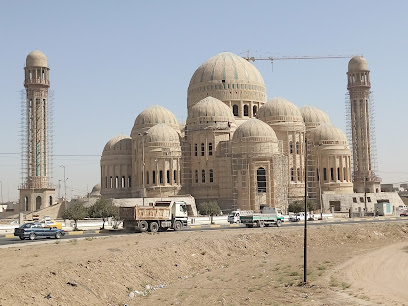
BUNS N' PIES better burger better pizza
Gourmet burgers and artisanal pizzas meet Middle Eastern flavors in a modern, family-friendly Mosul restaurant.
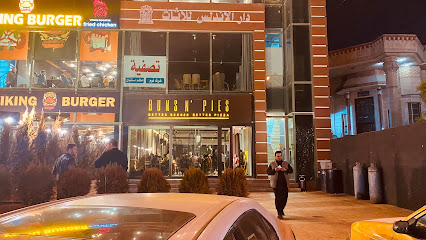
قوارير للتسوق المنزلي
Explore Qwarrer, Mosul's vibrant shopping mall offering a unique mix of local and international brands, dining options, and a lively cultural experience.
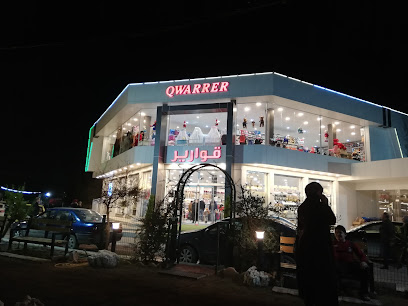
Mosul Museum
Witness history reborn at the Mosul Museum, a symbol of resilience and cultural preservation in the heart of Iraq. Reopening in 2026.
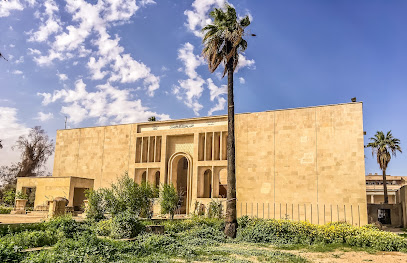
Al Sayegh mosque
Discover the Al Sayegh Mosque in Mosul, a breathtaking blend of history, culture, and faith, embodying the spirit of resilience in Iraq.
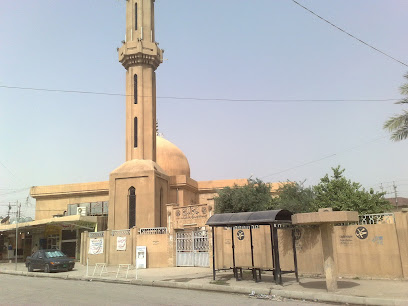
Diab Al-Iraqi mosque
Discover the Diab Al-Iraqi Mosque in Mosul, a landmark of stunning Islamic architecture and a testament to the city's enduring cultural heritage.
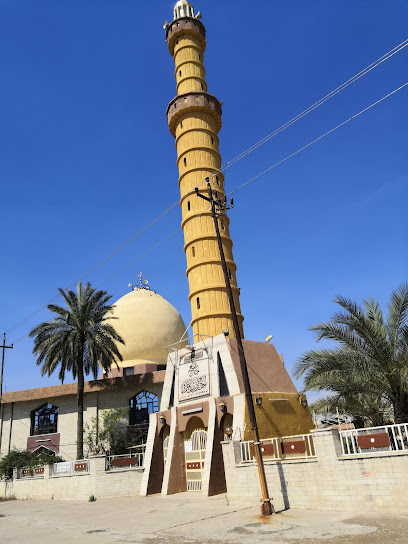
Al Noree Al Kaber Mosque
Discover the Al Noree Al Kaber Mosque in Mosul, a resilient symbol of history and hope rising from the ruins of war.
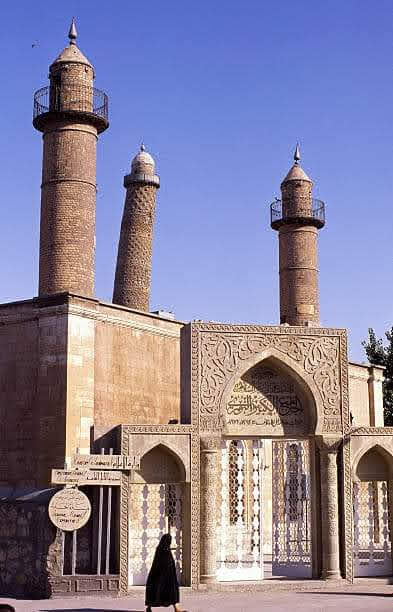
جامع المواصل الكبير (جامع صدام الكبيرسابق)
An uncompleted modern mosque on the Tigris River's east bank, showcasing Mosul's architectural ambition and cultural heritage.
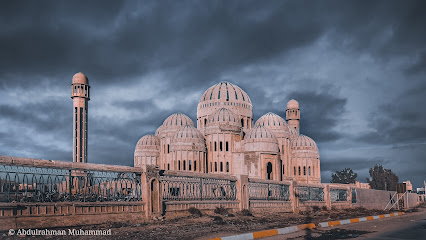
Bashtabya Castle
Explore the ruins of Bashtabya Castle in Mosul, a 12th-century fortress with a commanding view and a rich history of sieges and empires.
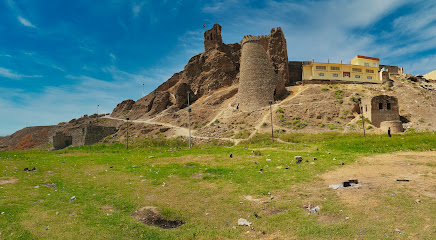
مؤسسة بيتنا للثقافة والتراث
مؤسسة بيتنا للثقافة والتراث: استكشف فن وتراث الموصل في مكان واحد. معارض فنية، ورش عمل، أمسيات ثقافية وتراث محلي.
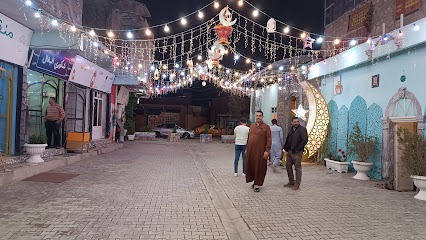
Park Al-muthana
Escape to nature in the heart of Mosul at Park Al-Muthana, a serene retreat with gardens, walking paths, and cultural experiences.
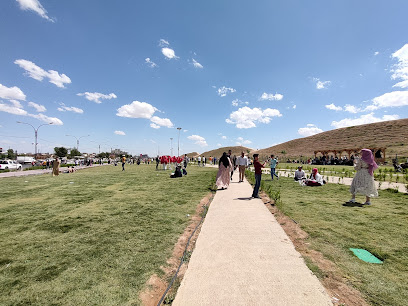
Mosul International Airport
Witness Mosul's resurgence at its International Airport, a symbol of hope and connection in a city rebuilding for the future.
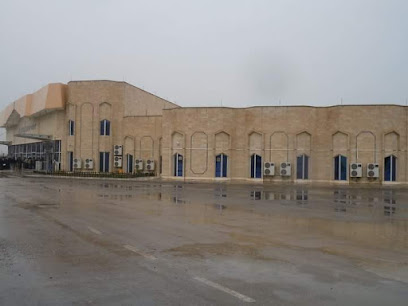
Rex
Experience modern coffee culture in Mosul at Rex, a cozy spot for locals and tourists alike to relax and connect.
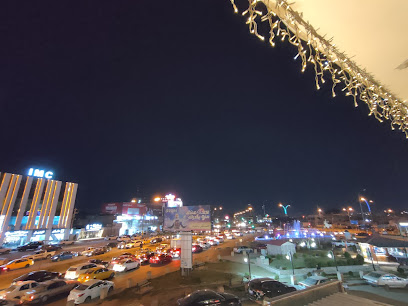
Buddies Rest | بديز بركر
Enjoy classic fast food with a local touch at Buddies Rest in Mosul. Fresh burgers and a welcoming atmosphere await!
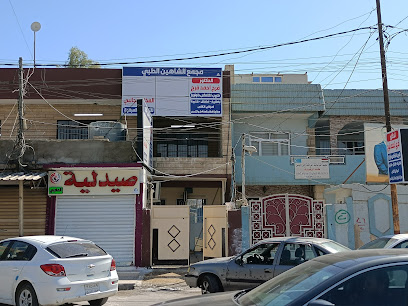
Sultan Palace Hotel
Experience comfort and convenience at Sultan Palace Hotel, your gateway to exploring the historic city of Mosul.
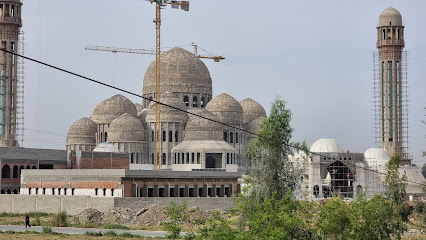
Unmissable attractions to see
Rotation AlNafora
Find serenity in the heart of Mosul at Rotation AlNafora, a green escape for relaxation and community.
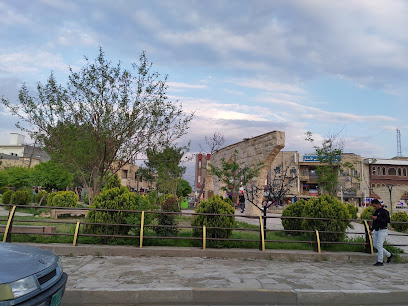
Mosul Amusement park
Experience thrilling rides and joyful moments at Mosul Amusement Park, a symbol of entertainment and resilience in the heart of Mosul.
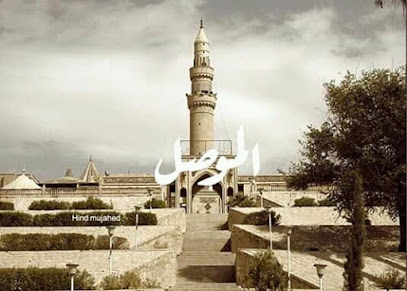
Mosul Museum
Explore millennia of Mesopotamian history at the Mosul Museum, a symbol of resilience and cultural heritage in Nineveh Governorate.
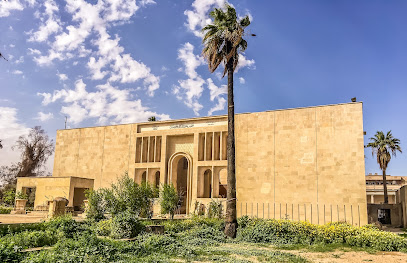
كازينو السلطان السياحي
Discover Kazino Al-Sultan, a unique tourist attraction and coffee shop in Mosul, offering delightful brews and a taste of local culture.
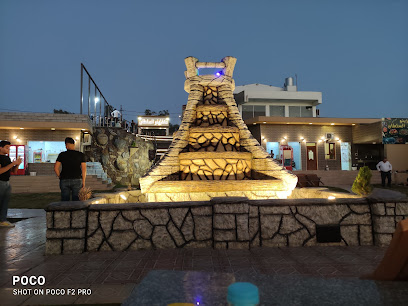
Bashtabya Castle
Explore the historic Bashtabya Castle in Mosul, a 12th-century fortress offering panoramic views and a glimpse into the city's resilient past.
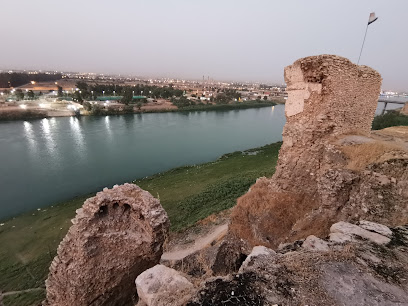
Park Al-muthana
Escape to Park Al-Muthana in Mosul: A green oasis offering tranquility, nature, and cultural experiences for all visitors.
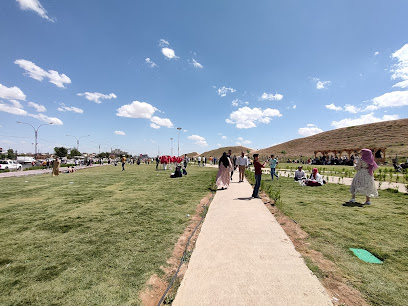
كورنيش الجوسق
Escape to كورنيش الجوسق in Mosul: a serene riverside park with beautiful gardens, perfect for relaxing walks and scenic views.
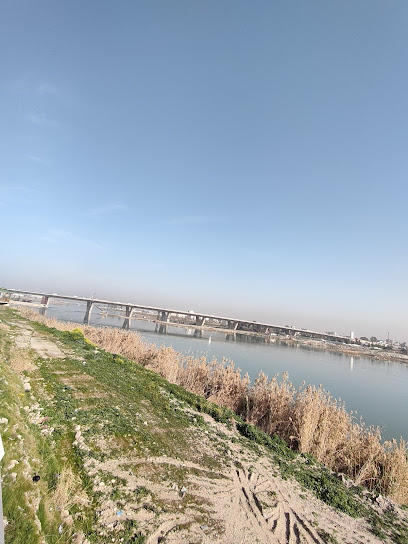
Best View
Enjoy panoramic views and a tranquil escape at Best View, a relaxing park in Mosul's Left Coast offering scenic beauty and recreation.
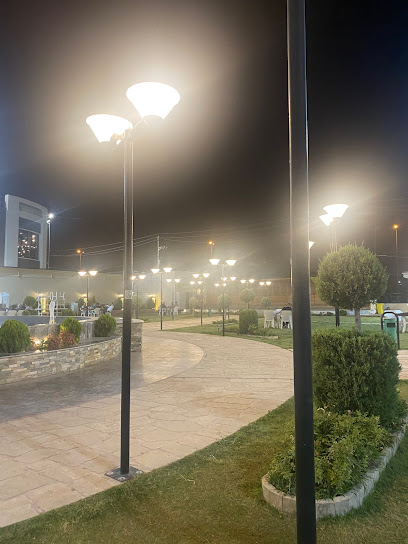
كورنيش نهر دجلة
Experience tranquility at كورنيش نهر دجلة in Mosul: scenic Tigris River views, relaxing walks, and a taste of local culture await!
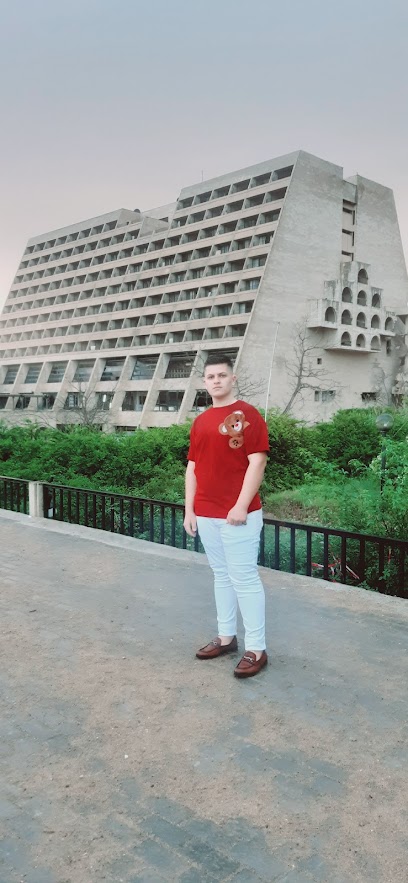
نافورة باب الطوب
Experience the revitalized spirit of Mosul at نافورة باب الطوب, a popular park and fountain symbolizing the city's ongoing recovery.
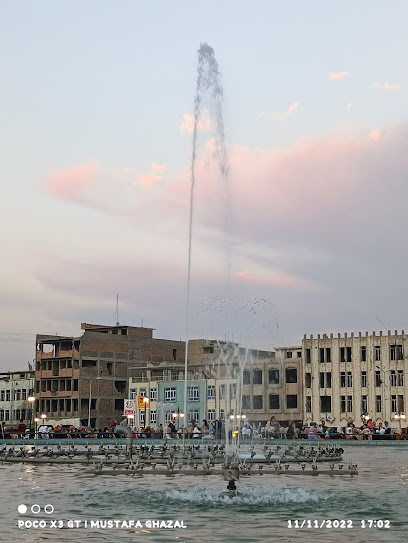
متنزه باب الطوب
Experience tranquility in the heart of Mosul at متنزه باب الطوب, a revitalized green space perfect for relaxation and community.
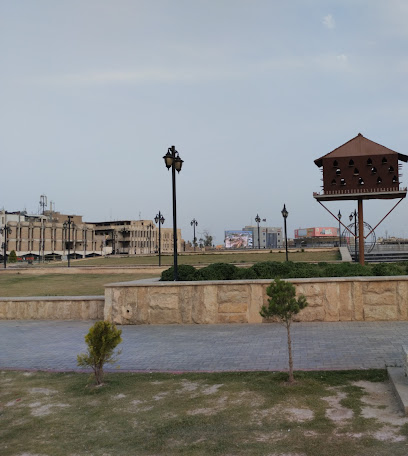
متنزه البلديات
Discover a green escape in Mosul at متنزه البلديات, a perfect spot for family outings and relaxation.
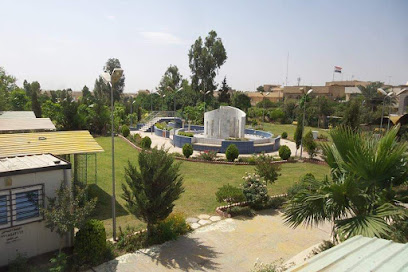
حديقة الشهداء
Reflect and remember in Mosul's serene حديقة الشهداء, a garden steeped in history and dedicated to the nation's heroes.
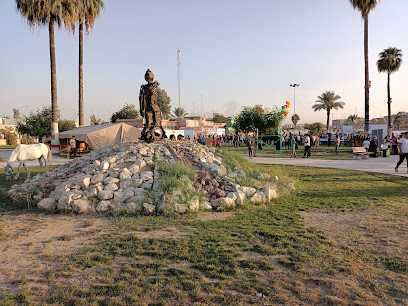
حمام المنقوشة
Explore the historic Hammam al-Manqusha in Mosul's Old City, a testament to the city's rich culture and নকশা traditions.
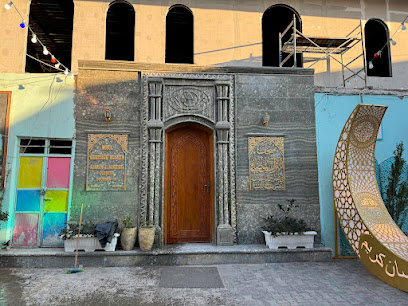
Dair Mar Elia
Explore the ruins of Dair Mar Elia in Mosul, a symbol of faith and resilience, reflecting centuries of Christian heritage in Iraq.
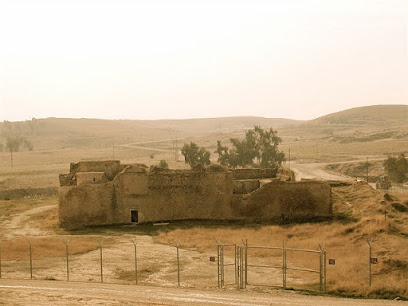
Essential places to dine
Khattar Restaurant
Discover authentic Iraqi flavors at Khattar Restaurant in Mosul – where every dish tells a story.
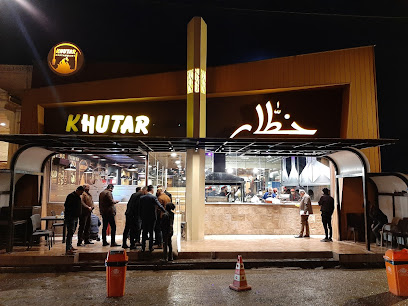
Saydaty Al-Jamila Restaurant
Experience authentic Iraqi flavors at Saydaty Al-Jamila Restaurant in Mosul – where tradition meets taste.
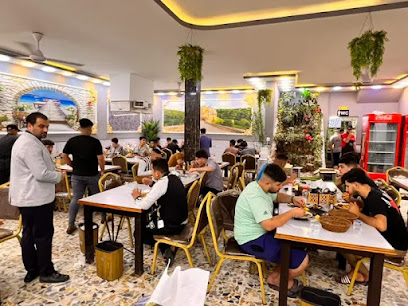
Abu layla 2
Experience authentic Iraqi flavors at Abu Layla 2 in Mosul – where culinary tradition meets modern hospitality.
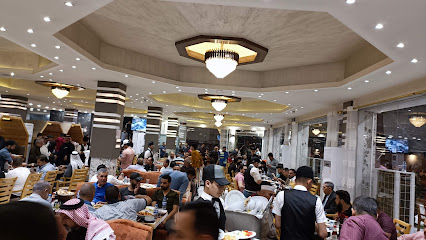
Abu Laila Restaurant 2
Experience authentic Iraqi cuisine at Abu Laila Restaurant 2 in Mosul - where tradition meets flavor in a vibrant setting.
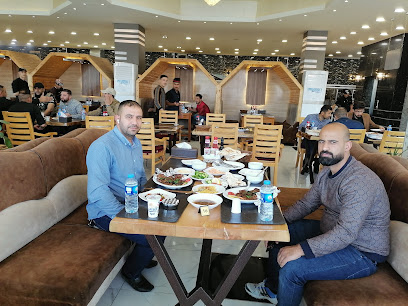
KHAILD abu Al-Kass
Discover the rich flavors of Iraqi cuisine at Khaild Abu Al-Kass in Mosul - an unforgettable dining experience awaits.
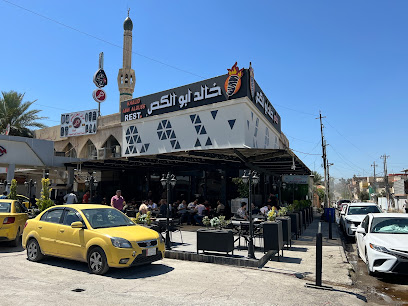
Al-Hatab Resturant
Experience the authentic flavors of Iraq at Al-Hatab Restaurant in Mosul - where tradition meets taste.
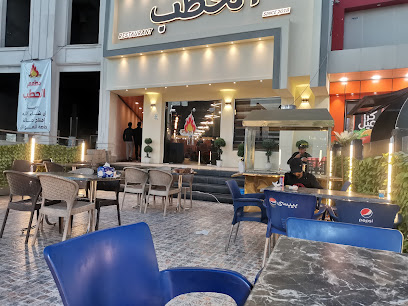
Bait Jidi Restaurant
Experience authentic Iraqi cuisine at Bait Jidi Restaurant in Mosul—where tradition meets flavor in every dish.
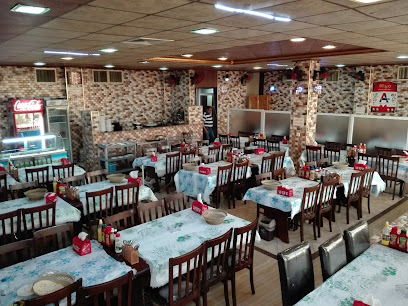
Restaurant Alnafora
Discover authentic Iraqi cuisine at Restaurant Alnafora in Mosul - a culinary gem offering delicious traditional dishes in a vibrant setting.
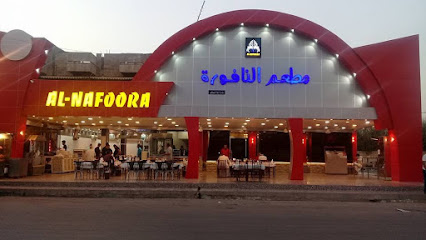
Saray Resturant
Discover authentic Iraqi cuisine at Saray Restaurant in Mosul – where every dish is a celebration of flavor.
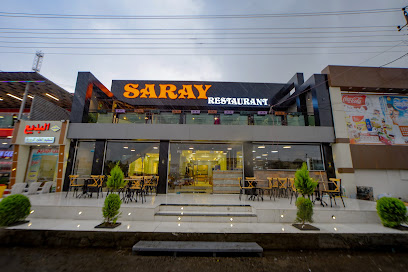
BUNS N' PIES better burger better pizza
Discover culinary bliss at BUNS N' PIES in Mosul - where gourmet burgers meet delicious pizzas in a cozy setting.
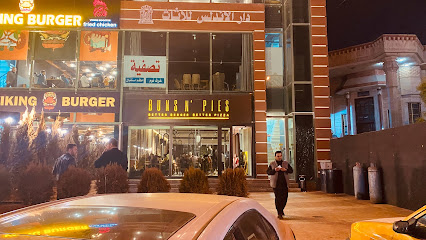
مطعم وقاعة جنائن الموصل
Discover authentic Iraqi cuisine amidst the serene gardens at مطعم وقاعة جنائن الموصل in Mosul.
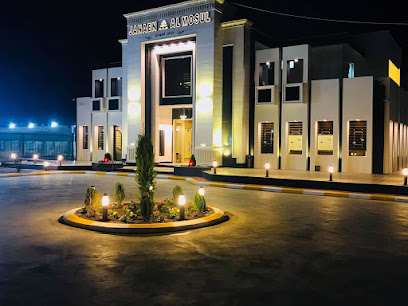
Fahody Restaurant
Experience authentic Iraqi cuisine at Fahody Restaurant in Mosul - where tradition meets taste in every dish.
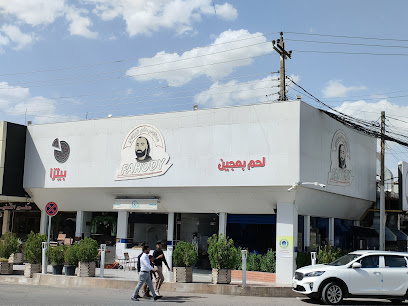
Al Andulas restaurant
Discover authentic Iraqi cuisine at Al Andulas Restaurant in Mosul—where tradition meets taste in every bite.
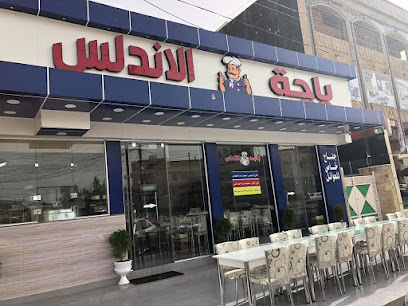
مطعم لفي - laffe restaurant
Discover exquisite flavors at Laffe Restaurant in Mosul - where tradition meets modern dining in an inviting atmosphere.
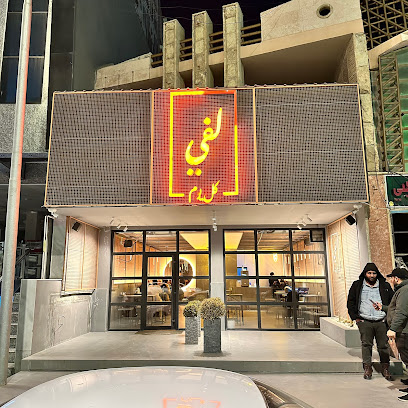
Al Mahmoud Restaurant
Experience authentic Iraqi cuisine at Al Mahmoud Restaurant in Mosul - a culinary gem offering delicious flavors and warm hospitality.
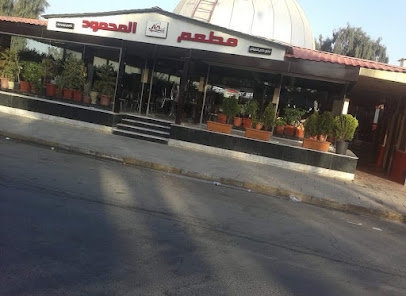
Markets, malls and hidden boutiques
1:10 Home Shopping
Discover the vibrant shopping experience at 1:10 Home Shopping Mall in Mosul, featuring diverse shops, dining options, and exciting entertainment.
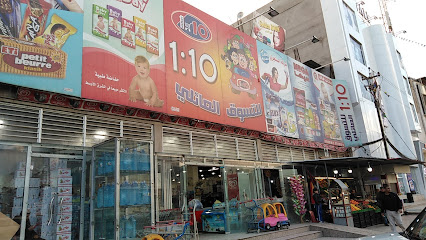
Moda Mall
Explore Moda Mall in Mosul: A vibrant shopping destination blending fashion, food, and culture for an unforgettable experience.
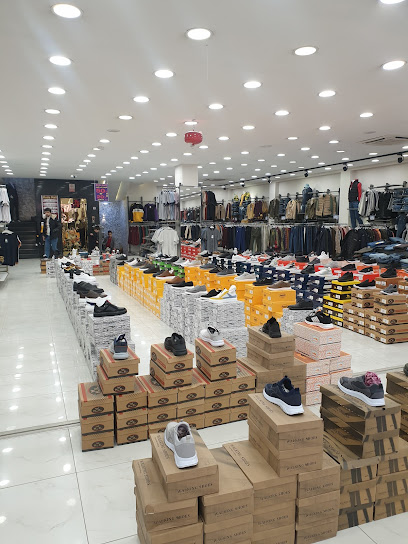
محلات المنصور
Explore محلات المنصور in Mosul for a unique blend of shopping, entertainment, and local culture.
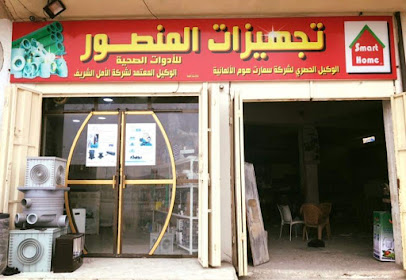
O3 ozoon
Discover unique fashion at O3 Ozoon, a clothing store in Mosul blending local culture with modern style.
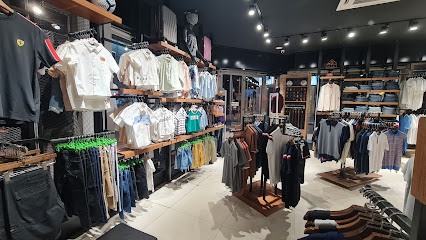
MALL 2M FAMILY SHOPPING مول تو ام للتسوق العائلي
Explore MALL 2M in Mosul: A vibrant family shopping destination featuring gourmet groceries, outlet bargains, and delightful dining options.
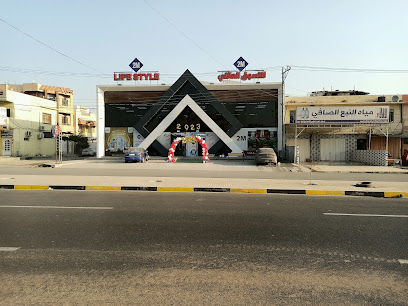
Miniso
Explore Miniso in Mosul: Your go-to destination for trendy, affordable lifestyle products that make perfect souvenirs.
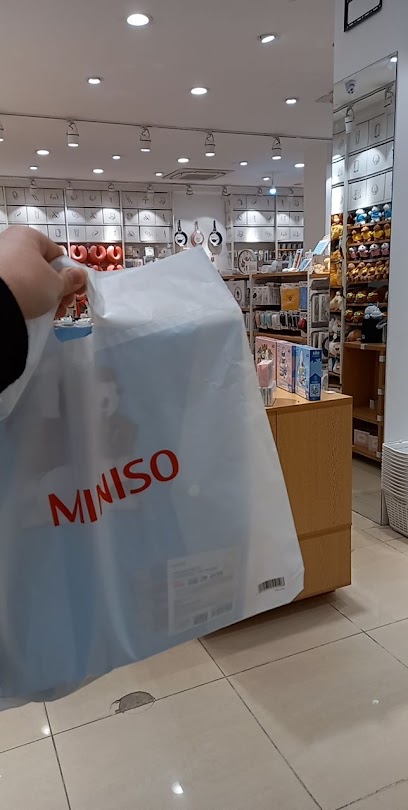
Maru_Store_iq
Explore Maru Store in Mosul: A vibrant shopping mall offering a unique blend of local crafts, international brands, and authentic Iraqi cuisine.
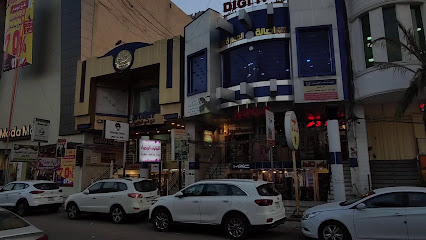
Mosul, Iraq
Experience the rich flavors of Mosul's candy store, where tradition meets sweetness in every delightful bite.
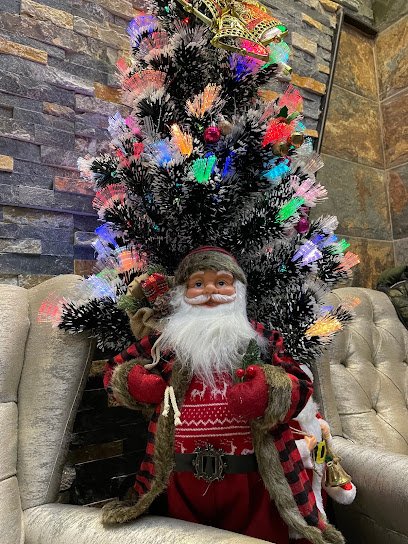
خان ستور
Discover the vibrant Khan Store in Mosul, a cultural market rich in local craftsmanship and unique home goods reflecting the heritage of Nineveh.

الساعاتي
Explore the cultural heart of Mosul at الساعاتي, your go-to gift shop for unique local crafts and souvenirs.
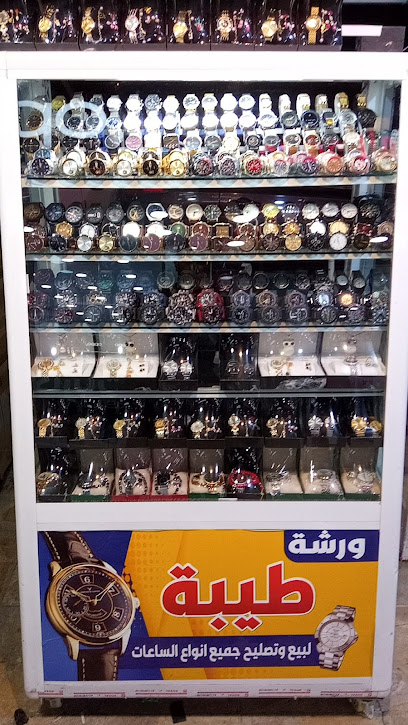
Ayman Electronic
Explore Ayman Electronic in Mosul for a diverse selection of the latest gadgets and electronics at competitive prices.

سنتر V.I.P للالبسة والاحذية الرجالية
Explore the stylish offerings of سنتر V.I.P للالبسة والاحذية الرجالية, Mosul's premier destination for men's fashion and footwear.

ديكورات الحضارة
Discover the rich cultural heritage of Mosul at ديكورات الحضارة, where history and tradition meet in stunning architectural beauty.

زيد لوازم
Explore Zaid Lwazem in Mosul for a blend of traditional and modern women's fashion in a vibrant local shopping experience.
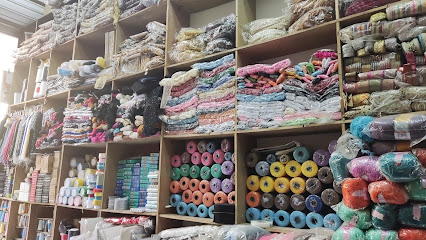
Antika maker
Explore Antika Maker in Mosul: your go-to gift shop for unique souvenirs reflecting the rich culture and craftsmanship of the region.

Essential bars & hidden hideouts
دورة غابات الموصل
Explore the serene beauty of Mosul Forest Circle, a lush retreat offering scenic trails and vibrant wildlife in the heart of nature.
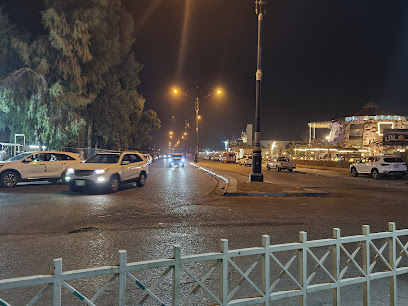
مخزن الكوخ
Experience the vibrant atmosphere and local culture at مخزن الكوخ, Mosul's hidden gem for relaxation and socializing.
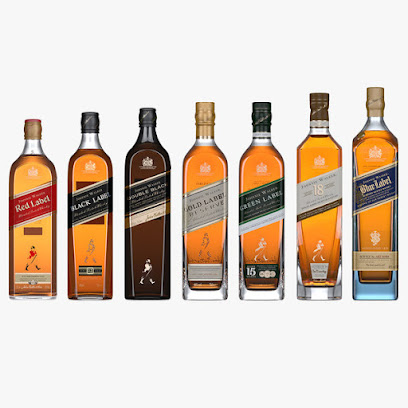
عرب جول
Experience the lively ambiance and local flavors at عرب جول, a must-visit pub in the heart of Mosul, perfect for unwinding after a day of exploration.

عبدالله الخزرجي
Experience the vibrant nightlife of Mosul at Abdullah Al-Khazraji Bar, a perfect blend of local traditions and modern relaxation.
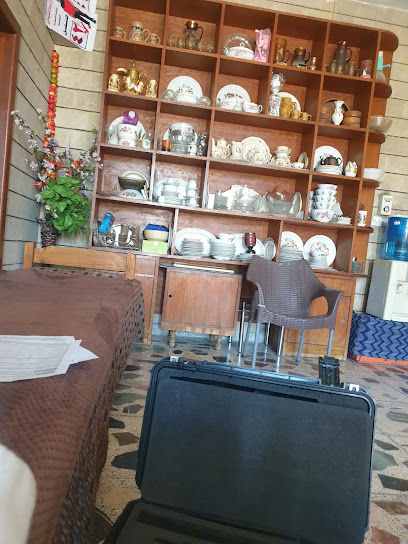
شيخانه معد
Experience the spirited nightlife and local culture at شيخانه معد in Mosul, a vibrant bar that welcomes tourists and locals alike.

مرطبات ابو عبدالله
Discover the refreshing ambiance and local flavors at مرطبات ابو عبدالله, the perfect bar to unwind in Mosul.

عطاريه ابو يوسف
Discover the charm of Mosul at عطاريه ابو يوسف, a bar offering a blend of local culture, warm hospitality, and refreshing drinks.
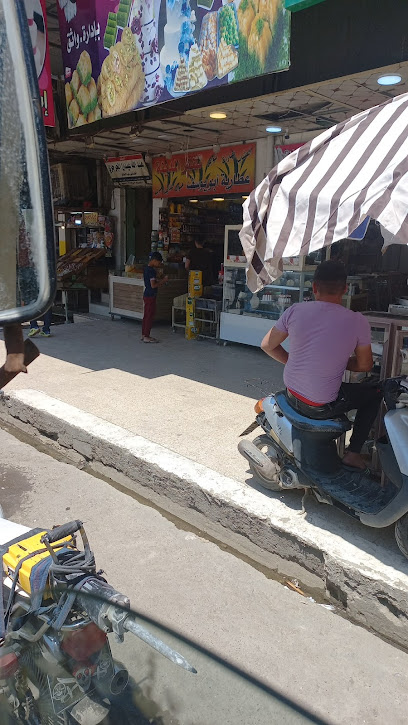
علي باله
Discover the lively atmosphere of Ali Balh, a cocktail bar in Mosul, where craft cocktails and vibrant nightlife intertwine.

يوسف
Unwind at يوسف, a lively bar in Mosul where local culture meets modern nightlife in a vibrant atmosphere.

كفتريا كلاسكو
Experience the vibrant nightlife at كفتريا كلاسكو in Mosul, where tradition meets modernity for an unforgettable evening.

مقبلات فراس سريشكي
Explore the vibrant flavors of Iraq at Maqablat Firas Sreshki, a bar in Mosul offering delicious appetizers and a lively atmosphere.

ياسر الفيتر
Discover the lively atmosphere and rich cultural experience at ياسر الفيتر, Mosul's vibrant bar perfect for relaxation and entertainment.

Ghost Games
Discover a vibrant lounge experience in Mosul at Ghost Games, where modern comfort meets rich Middle Eastern culture.

بيتنا
Discover the relaxed ambiance of بيتنا, a bar in Mosul offering local drinks and a taste of vibrant culture in a cozy setting.

Local Phrases
-
- Helloسلام
[salaam] - Goodbyeوداعا
[wadaa'an] - Yesنعم
[naam] - Noلا
[laa] - Please/You're welcomeمن فضلك/على الرحب والسعة
[min fadlik/ala al-rahb was-sa'ah] - Thank youشكرا
[shukran] - Excuse me/Sorryعذرا
['udhran] - How are you?كيف حالك؟
[kayf halik?] - Fine. And you?بخير. وأنت؟
[bi-khayr. wa ant?] - Do you speak English?هل تتحدث الانجليزية؟
[hal tatahadath al-ingliziyya?] - I don't understandأنا لا أفهم
[ana la afham]
- Helloسلام
-
- I'd like to see the menu, pleaseأود أن أرى القائمة، من فضلك
[awad an ara al-qaimah, min fadlik] - I don't eat meatأنا لا آكل اللحم
[ana la aakul al-lahm] - Cheers!في صحتك!
[fi sahtak!] - I would like to pay, pleaseأود أن أدفع، من فضلك
[awad an adfa', min fadlik]
- I'd like to see the menu, pleaseأود أن أرى القائمة، من فضلك
-
- Help!النجدة!
[al-najdah!] - Go away!انصرف!
[ansarif!] - Call the Police!اتصل بالشرطة!
[iatisil bialshurta!] - Call a doctor!اتصل بالطبيب!
[iatisil bialtabib!] - I'm lostلقد ضللت
[laqad dalalt] - I'm illأنا مريض
[ana mareed]
- Help!النجدة!
-
- I'd like to buy...أريد أن أشتري...
[uriid an ashtri...] - I'm just lookingأنا فقط أتطلع
[ana faqat atatala] - How much is it?بكم هذا؟
[bikam hadha?] - That's too expensiveهذا غالي جدا
[hadha ghali jiddan] - Can you lower the price?هل يمكنك خفض السعر؟
[hal yumkinuk khafe al-si'r?]
- I'd like to buy...أريد أن أشتري...
-
- What time is it?كم الساعة؟
[kam al-sa'ah?] - It's one o'clockالساعة الواحدة
[al-sa'ah al-wahidah] - Half past (10)العاشرة والنصف
[al-ashirah wan-nisf] - Morningصباح
[sabah] - Afternoonبعد الظهر
[ba'dha al-dhuhur] - Eveningمساء
[masa'] - Yesterdayأمس
['ams] - Todayاليوم
[al-yawm] - Tomorrowغدا
[ghadan] - 1واحد
[wahid] - 2اثنان
[ithnan] - 3ثلاثة
[thalatha] - 4أربعة
[arba'a] - 5خمسة
[khamsa] - 6ستة
[sitta] - 7سبعة
[sab'a] - 8ثمانية
[thamania] - 9تسعة
[tasia] - 10عشرة
[ashara]
- What time is it?كم الساعة؟
-
- Where's a/the...?أين (ال)...؟
[ayn (al)...?] - What's the address?ما هو العنوان؟
[ma huwa al-anaan?] - Can you show me (on the map)?هل يمكنك أن تريني (على الخريطة)؟
[hal yumkinuk an tarini (ala al-khariitah)?] - When's the next (bus)?متى يأتي الحافلة القادمة؟
[mata yaati al-haflah al-qadimah?] - A ticket (to ....)تذكرة (إلى ....)
[tadhkirah (ila ....)]
- Where's a/the...?أين (ال)...؟
History of Mosul
-
Mosul, known in ancient times as Nineveh, was an important city in the Assyrian Empire. It was founded around the 7th century BCE and became one of the largest cities in the ancient world. The ruins of Nineveh, located on the eastern bank of the Tigris River, are a testament to its historical significance. The city was a hub of commerce, culture, and politics in the Assyrian Empire.
-
Mosul was conquered by the Islamic Caliphate in 637 CE. Under the Abbasid Caliphate (750–1258 CE), the city flourished as a center of learning, trade, and culture. The Great Mosque of al-Nuri, built in 1172, is one of the notable architectural achievements from this period. The city's strategic location on the Silk Road contributed to its prosperity and cultural exchange.
-
In 1517, Mosul came under the control of the Ottoman Empire. During the Ottoman period, the city maintained its importance as a commercial and cultural center. The Ottomans built several significant structures, including the Qara Serai (Black Palace) and the Ottoman Bridge. The city's diverse population, including Arabs, Kurds, Assyrians, and Turkmen, contributed to its rich cultural tapestry.
-
After World War I, Mosul became part of the newly-formed Kingdom of Iraq in 1921. The discovery of oil in the region brought economic growth and geopolitical importance. However, the city also faced periods of conflict and instability, particularly during the Iran-Iraq War (1980-1988) and the Gulf War (1990-1991). In the early 21st century, Mosul was significantly impacted by the Iraq War (2003) and the rise of ISIS, which captured the city in 2014 and held it until 2017.
-
Mosul is renowned for its rich cultural heritage and architectural marvels. The city's old town, with its narrow alleys and traditional houses, reflects its historical significance. Notable landmarks include the Al-Nuri Mosque with its iconic leaning minaret, the ancient Assyrian ruins of Nineveh, and the Tomb of the Prophet Jonah (Nabi Yunus). Despite recent conflicts, efforts are ongoing to restore and preserve Mosul's cultural treasures.
-
Mosul has historically been a melting pot of various religious and ethnic communities. The city is home to Sunni and Shia Muslims, Christians (including Chaldeans and Assyrians), Yazidis, and other minority groups. This diversity has influenced Mosul's cultural and social fabric, with numerous churches, mosques, and temples dotting the cityscape. Festivals and religious traditions from different communities coexist, reflecting the city's pluralistic heritage.
Mosul Essentials
-
Mosul is located in northern Iraq, approximately 400 km north of Baghdad. The nearest international airport is Erbil International Airport, which is about 85 km away. From Erbil, you can take a taxi or arrange for a private car to drive you to Mosul. The journey typically takes around 1.5 to 2 hours. Alternatively, you can use domestic flights from Baghdad to Erbil and then travel by road to Mosul.
-
Mosul's public transport system is limited. Taxis are the most common mode of transportation and are relatively inexpensive. It's advisable to agree on the fare before starting the journey. Rental cars are also available but driving can be chaotic, so it is recommended only for experienced drivers. Shared taxis and minibuses, known locally as 'coasters,' serve various neighborhoods and are a cheaper option but may not be as comfortable or reliable.
-
The official currency in Iraq is the Iraqi Dinar (IQD). Credit cards are not widely accepted, so it's essential to carry cash for most transactions. ATMs are available in some parts of Mosul, but they can be unreliable. It's advisable to bring sufficient cash with you or withdraw money in larger cities like Erbil or Baghdad before traveling to Mosul.
-
Mosul has experienced significant conflict in recent years, and while security has improved, it remains a complex environment. Always stay updated on the current security situation through your embassy or local news sources. Avoid traveling to areas that are not recommended by local authorities or your embassy. Neighborhoods such as the Old City can still be hazardous due to unexploded ordnance and damaged infrastructure. Exercise caution, avoid nighttime travel, and do not wander into unfamiliar areas.
-
In case of emergency, dial 104 for police assistance, 115 for medical emergencies, and 113 for the fire department. It's advisable to have travel insurance that covers medical emergencies and evacuation. Major hospitals in Mosul include Al-Salam Hospital and Ibn Sina Teaching Hospital. For minor health issues, pharmacies are available throughout the city. Keep a list of emergency contacts, including your embassy, handy at all times.
-
Fashion: Do dress modestly. Men should avoid shorts, and women should cover their arms and legs. A headscarf is recommended for women, especially when visiting religious sites. Religion: Do respect local customs and traditions. Always remove your shoes and cover your head when entering mosques. Public Transport: Do be respectful and courteous to other passengers. Don't engage in loud conversations or public displays of affection. Greetings: Do greet people with a handshake. Use your right hand as the left is considered impolite. Eating & Drinking: Do accept food and drink offerings graciously. Don't eat or drink in public during Ramadan, as it is considered disrespectful to those who are fasting.
-
To experience Mosul like a local, visit the bustling markets such as the Mosul Souk, where you can buy local produce, spices, and handmade crafts. Engage with locals, who are often warm and welcoming. Try traditional dishes like 'Kubba' (stuffed meat patties) and 'Dolma' (stuffed grape leaves). Don't miss visiting historical sites such as the Al-Nuri Mosque and the Mosul Museum, which showcase the rich history and heritage of the city.
Trending Landmark in Mosul
-
Mosul Amusement park
-
BUNS N' PIES better burger better pizza
-
قوارير للتسوق المنزلي
-
Mosul Museum
-
Al Sayegh mosque
-
Diab Al-Iraqi mosque
-
Al Noree Al Kaber Mosque
-
جامع المواصل الكبير (جامع صدام الكبيرسابق)
-
Bashtabya Castle
-
مؤسسة بيتنا للثقافة والتراث
-
Park Al-muthana
-
Mosul International Airport
-
Rex
-
Buddies Rest | بديز بركر
-
Sultan Palace Hotel
Nearby Cities to Mosul
-
Things To Do in Dohuk
-
Things To Do in Erbil
-
Things To Do in Kirkuk
-
Things To Do in Sulaymaniyah
-
Things To Do in Baghdad
-
Things To Do in Vayk
-
Things To Do in Karbala
-
Things To Do in Kapan
-
Things To Do in Yerevan
-
Things To Do in Jermuk
-
Things To Do in Goris
-
Things To Do in Aparan
-
Things To Do in Tsaghkadzor
-
Things To Do in Najaf
-
Things To Do in Gyumri










